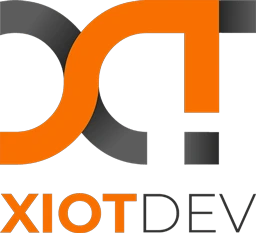How Market Leaders in eCommerce Use Web Intelligence to Gain an Edge

In the dynamic business environment of online retailing, remaining on the cutting edge is not an option; it is a requirement. With the eCommerce environment changing at an accelerated rate, winning leaders are relying on web intelligence to provide implementable insights and become more effective in their strategies.
This article investigates how eCommerce giants are leveraging data-driven intelligence to develop their edge, spot opportunities, and avoid threats in real-time. In the eCommerce Market, the number of users is expected to amount to 3.6bn users by 2029. Whether you’re launching a startup or scaling an enterprise, leveraging ecommerce development services in tandem with advanced web intelligence tools can help you position your brand as an industry leader.
What is web intelligence and why does it matter in ecommerce?
Web intelligence can be understood as the gathering, analysis, and utilization of publicly available internet data to inform business decisions. This will be the real-time monitoring of competitor activities, customer actions, evolving pricing, market direction, product reviews, and even dynamics of supply chains in the case of eCommerce.
The advantage? You are no longer reacting to the trends, you are guessing the trends. Web intelligence empowers top eCommerce players to stay proactive, responsive, and customer-focused at all times.
How can web intelligence improve pricing strategies?
- Real-time competitor monitoring: Track competitors’ pricing strategies to ensure you remain competitive without sacrificing profit margins.
- Dynamic pricing: Automatically varies according to supply, demand, time or recurring action of competitors.
- Historical pricing analysis: Based on the historical trends of prices, one can make future decisions and seasonal approaches.
- Customer sentiment insights: Analyze reviews and feedback to determine whether customers are price-sensitive or value-based.
- Market gap identification: This checks where your competitors are offering more, and thus you can take the high market share.
- Automated alerts & responses: develop automatic alerts on prices/inventory/promo campaigns when competitors do the same.
- Localization strategies: Modify the prices regionally or to a customer group in accordance with prices within the region and client reactions.
How does AI contribute to web intelligence in ecommerce?
The revolution in the development of web intelligence in eCommerce relies on Artificial Intelligence (AI). Whereas conventional web intelligence instruments use either manual observation or one-dimensional automation,
1. Automated data, collection, analysis
Using AI-powered crawlers and scrapers, web pages can be scanned and analyzed for data that is used by their algorithm values concerning competitor pricing, product availability, consumer reviews, and market trends continuously on a million-page scale. AI can deal with mountains of data exhaustively, so unlike humans, it sieves out the irrelevant and duplicate data.
2. Trend prediction/pattern recognition
AI may be used to identify latent trends in the buying behaviour, market dynamics, and pricing mechanisms. To give an example, it will even recognize that some of its products increase in demand following certain social media trends or in special weather conditions. This enables businesses to predict market changes rather than merely responding.
3. Optimization on dynamic pricing
The algorithms of AI will allow examining current market data and customer behavior in real-time and propose or carry out the optimal solutions with regard to pricing policies. Such models take into account such factors as the prices of the competitors, the elasticity of demand, whether the stocks are in or out, as well as the intentions of the buyers, leading to intelligent pricing decisions to maximize profits.
4. Personalization and customer segmentation
AI uses browsing history, purchasing trends, demographics, and behavior in order to segment customers accurately. By becoming aware of this, companies can provide a much more personal experience whether through suggestions, promotions, etc., which can increase sales by significant margins.
5. Sentiment, review analysis
Shopper sentiment tracking can be done through Natural Language Processing (NLP) based Artificial Intelligence on customer reviews, comments, and social media mentions to know what the masses say about products, competitors, and brands. This assists companies in determining how to do things better and identifying gaps in products.
What are the ethical issues of web intelligence?
Web intelligence recognizes that publicly available data is used, but ethical boundaries should be observed. Businesses should:
- Personal data should not be scraped.
- Be courteous to terms of service of a site.
- Inform customers that we are open about using collected data to personalize their experiences.
- Wherever feasible, use anonymized data.
Hiring recognized ecommerce development services can help you make sure that your systems are legal and ethical
What can you do to start using web intelligence and your ecommerce store?
It does not require a huge budget or enterprise-level tools to get started. The following is a roadmap:
- Specify your objectives: Are you interested in following competitors, in price optimization, or searching for new markets?
- Tool choice: Start with free platforms or budget tools like Google Alerts, SimilarWeb, or VisualPing.
- Collect baseline data: Where are you now in the market?
- Utilize ecommerce development services: Enterprise solutions tailored to your business processes can provide deeper insights more quickly.
Conclusion
In the competitive environment, using AI and integrating it with web intelligence would enable businesses to be ahead of the market, providing the best in terms of price and customer experience. By leveraging professional ecommerce development services, a brand can transform raw data into actionable plans that drive growth, efficiency, and seamless success in eCommerce.
FAQs
1. What is web intelligence as it applies to eCommerce?
Web intelligence in eCommerce involves gathering, mapping, and operationalizing publicly available information to inform sound business decisions. It assists companies to spy on rivals, keep up with the trends, and learn about customers.
2. What are some of the ways in which small eCommerce businesses can use web intelligence?
Simple tools may include Google Alerts, review tracking services, or price tracker extensions so that small businesses may get started. These do not necessitate a huge investment; they can give very useful information.
3. Is competitive analysis legal scraping?
Use of web scraping tends to be legal where it deals with publicly available data, and is not done in breach of the terms of service of the website in question. Finally, make sure you use legal advisors, and that craping tools are ethical.
4. Is web intelligence useful to enhance product listings?
Yes. With the help of competitor product descriptions, customer reviews, and search trends, you can streamline your product descriptions, images and metadata so as to increase conversions.
5. What is the reason to outsource ecommerce services to incorporate web intelligence?
The professional e-commerce development solutions will be able to tailor tools, dashboards and automation workflows all of which can easily become part of your platform and make data actionable and in real-time.
What to read next
Mastering Local SEO for Restaurants, Bars, and Breweries: A Complete Guide
Top 7 Challenges and Solutions for Fitness App Development
A Complete Guide to Business Grants for Startups
Let’s Start a discussion!
Do you have a web design idea? Want to turn your idea into a realistic website? Let’s put efforts together to get an efficient and market-ready website.
